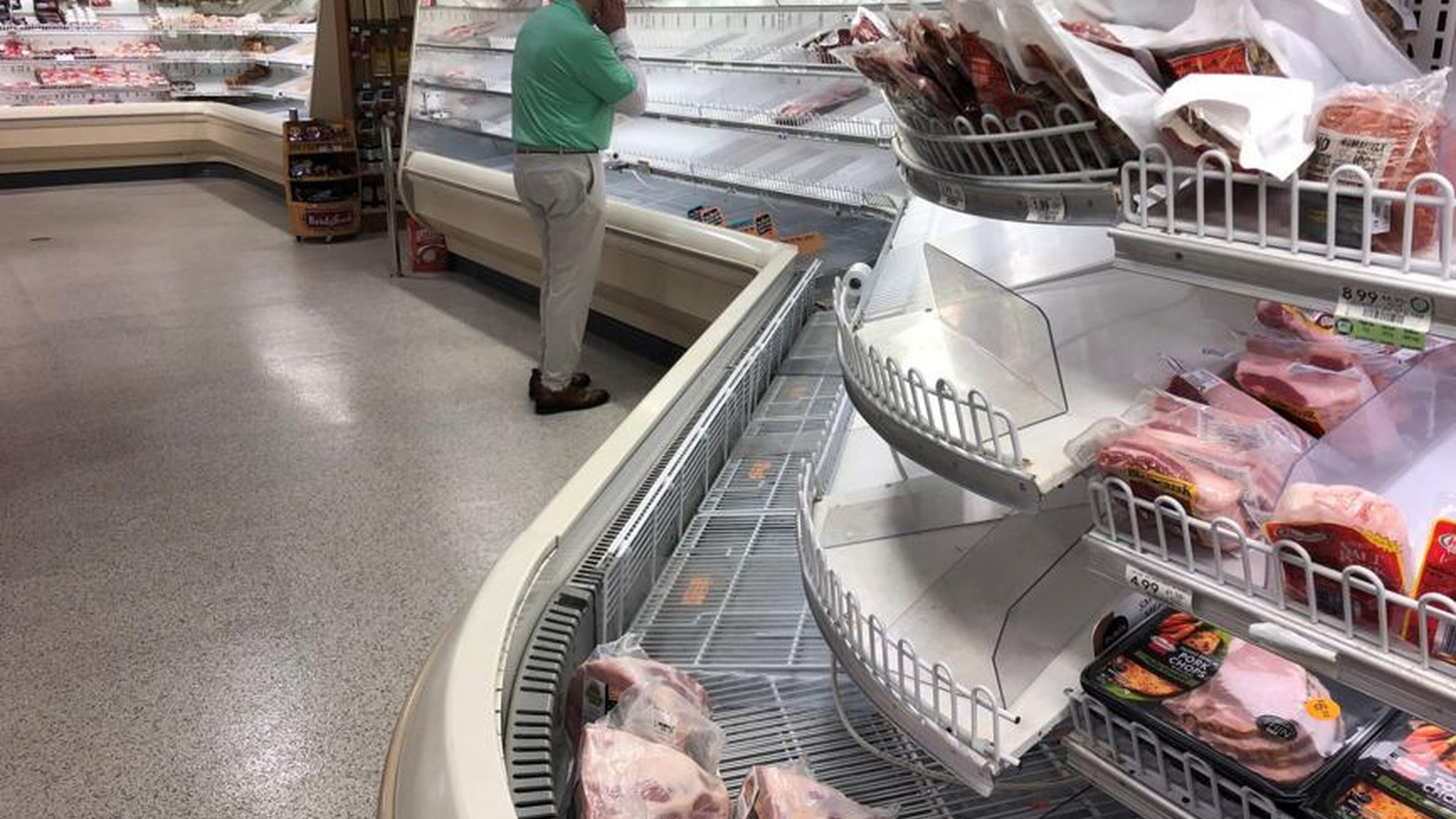Georgia agriculture’s biggest player whipsawed by shopping changes

For the past few weeks, shoppers have been emptying grocery stores of chicken, spurred on by fears of coronavirus shortages. Yet wholesale prices for the meat are dropping.
It’s the opposite of what was taught in high school economics classes: When supply is low, prices ought to be high.
What the high school teacher may have left out of the economics lessons are market-moving events like panic buying, or other sudden shifts in buying habits that leave supply chains whipsawed until they can catch up. They may get that chance.
“Consumers who stockpiled are destocking,” said economist Will Sawyer — his way of saying shoppers have stopped buying and are eating what’s piled up in their freezers. Sawyer tracks protein prices for the agricultural lender CoBank.
And many restaurants are closed and have stopped buying, meaning chicken has piled up in warehouses. That is having an effect on prices.
As of last Friday, prices fell to $1.05 a pound, according to the U.S. Department of Agriculture.
“We are seeing price on poultry at the wholesale level down about 20 to 25%,” said Matt Friedman, the founder and chief executive of Atlanta-based Wing Zone, a chain with more than 90 restaurants.
The company buys 6 million pounds of chicken wings a year plus chicken breast for its restaurants, mostly franchisee-owned and located in the Southeast.
Low prices will send ripples through the Georgia economy. Chicken is the biggest portion of Georgia’s agriculture business, at $3.5 billion in meat sales yearly. About 33,000 work in processing jobs.
“Prices fell by 20 cents a pound in a week, which is a lot,” Sawyer said. Producers ought to be at about the break-even point for profits, right now, he added.
Typically, chicken prices ought to be rising in the spring because it’s the beginning of grilling season and some big sport events, which have been canceled, increase sales.
“We really had a March Madness, but not with basketball,” Sawyer said.
At the Fieldale Farms chicken processing plant in tiny Baldwin, about an hour northeast of Atlanta, workers are showing up and processing 3.2 million chickens a week, said President Tom Hensley.
“We are working as hard as we can work” to keep grocery shelves full, he said. “But what’s good for the grocery business is bad for the restaurant business.”
Sales there have slowed to a trickle, leaving many processing plants and warehouses overstocked, according to last Friday’s U.S.D.A.’s market-price report.
Tom Super, spokesman for the National Chicken Council, said producers are doing everything they can to keep employees safe during the pandemic.
“Food service demand has obviously taken a big hit.” he said. “Companies have been working to shift production and packaging from food service to retail, but that takes time. We have not experienced any long-term plant closures as of today.”
And if there’s a good side to the Great Recession, it left the surviving companies in better shape, Sawyer said.
“One thing we know for sure is, if this does look like a more difficult spring and summer, the companies are far less debt laden today than they were 12 or 13 years ago,” he said. So he doesn’t expect the bankruptcies and business auctions of the last decade.
Staff writer Matt Kempner contributed to this story.



